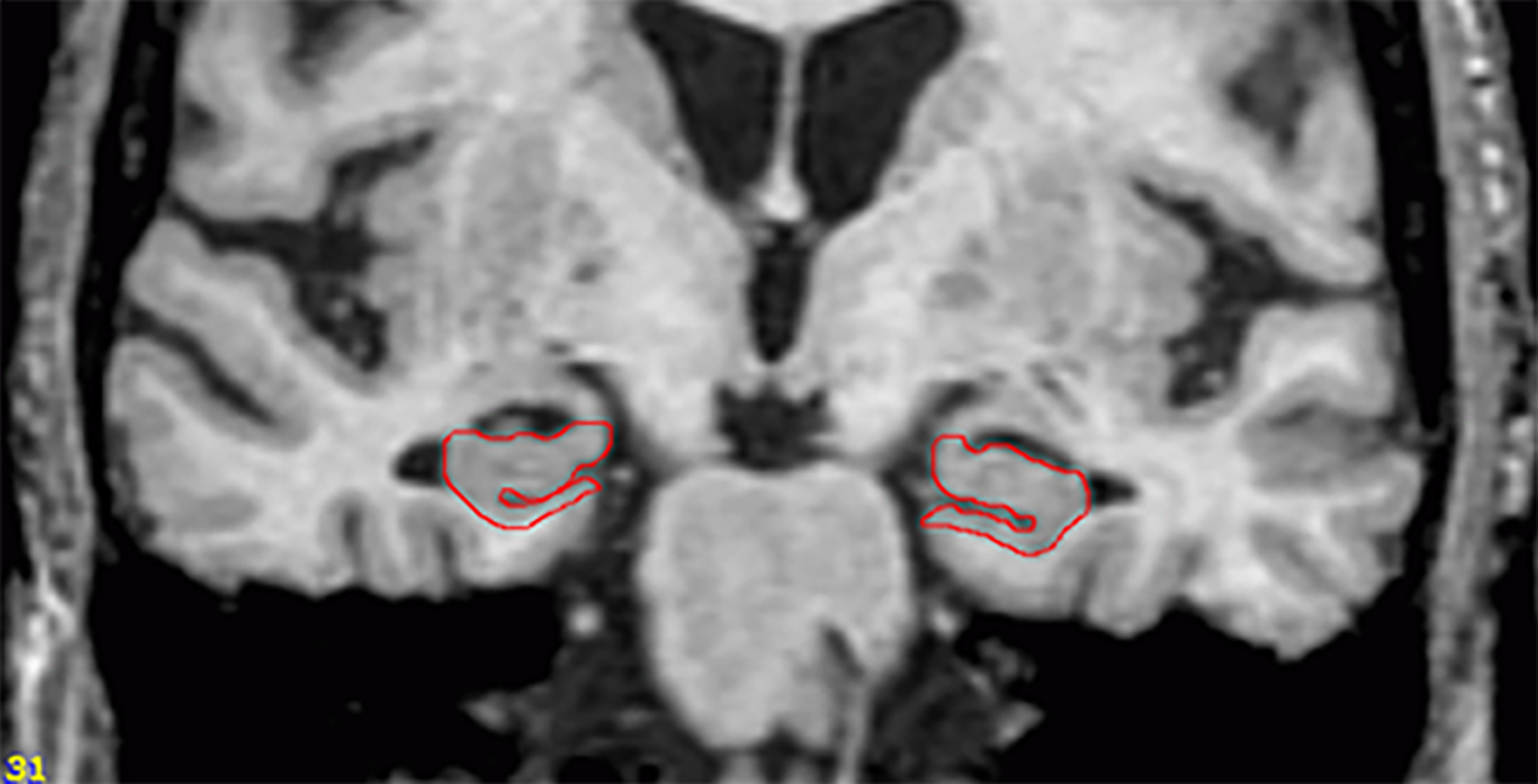-
Study: Lack of brain shrinkage may help predict who develops dementia with Lewy bodies
 ROCHESTER, Minn. – Dementia with Lewy bodies is a progressive disease that causes hallucinations, decline in mental abilities, rigid muscles, slow movement and tremors. With symptoms similar to Alzheimer’s disease and Parkinson’s disease, a correct diagnosis can be difficult.
ROCHESTER, Minn. – Dementia with Lewy bodies is a progressive disease that causes hallucinations, decline in mental abilities, rigid muscles, slow movement and tremors. With symptoms similar to Alzheimer’s disease and Parkinson’s disease, a correct diagnosis can be difficult.
A new study published today in the online issue of Neurology, a medical journal of the American Academy of Neurology, shows that a lack of shrinkage in the area of the brain called the hippocampus may be a sign that people with thinking and memory problems may develop dementia with Lewy bodies rather than Alzheimer’s disease. Atrophy of the hippocampus, the area of the brain responsible for thinking and memory, is an early sign of Alzheimer’s disease.
“Identifying people with mild cognitive impairment at risk for dementia with Lewy bodies is critical for early interventions,” says the study’s lead author Kejal Kantarci, M.D., a Mayo Clinic radiologist. “Early diagnosis helps target appropriate treatments, including what medications not to give. For example, as many as 50 percent of people with Lewy body disease have severe reactions to antipsychotic drugs.”
MEDIA CONTACT: Susan Barber Lindquist, Mayo Clinic Public Affairs, 507-284-5005, newsbureau@mayo.edu
Lewy bodies are protein deposits that develop in nerve cells in regions of the brain involved in thinking, memory and movement.
In the study, 160 people with mild cognitive impairment had brain MRI scans to measure hippocampus size. They also had yearly tests for an average of two years. During that time, 61 people, or 38 percent, developed Alzheimer’s disease, and 20 people, or 13 percent, progressed to probable dementia with Lewy bodies. Because Lewy body disease can be diagnosed only by an autopsy after death, it is called probable dementia with Lewy bodies. The researchers note that their results should be confirmed with studies that use autopsies for final diagnoses.
The people who had no shrinkage in the hippocampus were 5.8 times more likely to develop probable dementia with Lewy bodies than those who had hippocampal atrophy. Seventeen of 20, or 85 percent, of people who developed dementia with Lewy bodies had a normal hippocampus volume; whereas, 37 of the 61, or 61 percent, of people who developed Alzheimer’s disease had hippocampus atrophy.
The relationship of hippocampus volume and disease was stronger among people without memory issues. Dementia with Lewy bodies does not always affect memory. Affected thinking skills usually include attention, problem-solving and interpreting visual information.
The study was supported by the National Institutes of Health, the Mangurian Foundation, Robert H. and Clarice Smith and the Abigail Van Buren Alzheimer’s Disease Research Program.
In addition to Dr. Kantarci, Mayo Clinic study co-authors are:
- Timothy Lesnick
- Tanis Ferman, Ph.D.
- Scott Przybelski
- Bradley Boeve, M.D.
- Glenn Smith, Ph.D.
- Walter Kremers, Ph.D.
- David Knopman, M.D.
- Clifford Jack Jr., M.D.
- Ronald Petersen, M.D., Ph.D.
###
About Mayo Clinic
Mayo Clinic is a nonprofit organization committed to clinical practice, education and research, providing expert, whole-person care to everyone who needs healing. For more information, visit mayoclinic.org/about-mayo-clinic and newsnetwork.mayoclinic.org.







